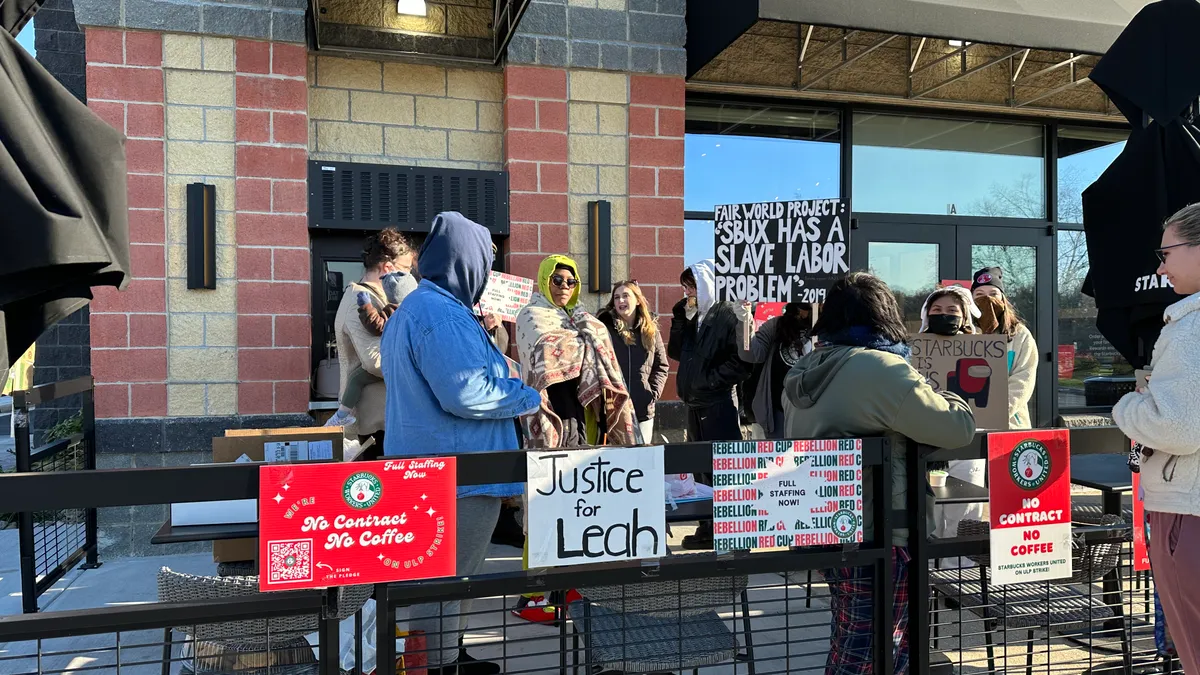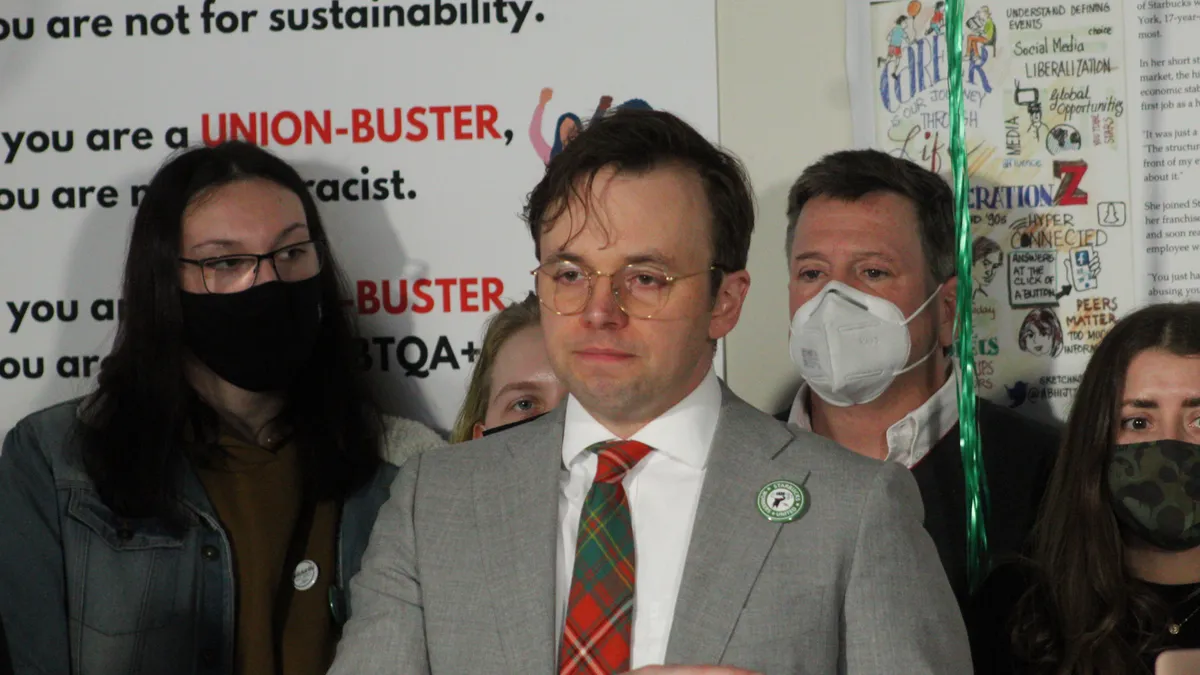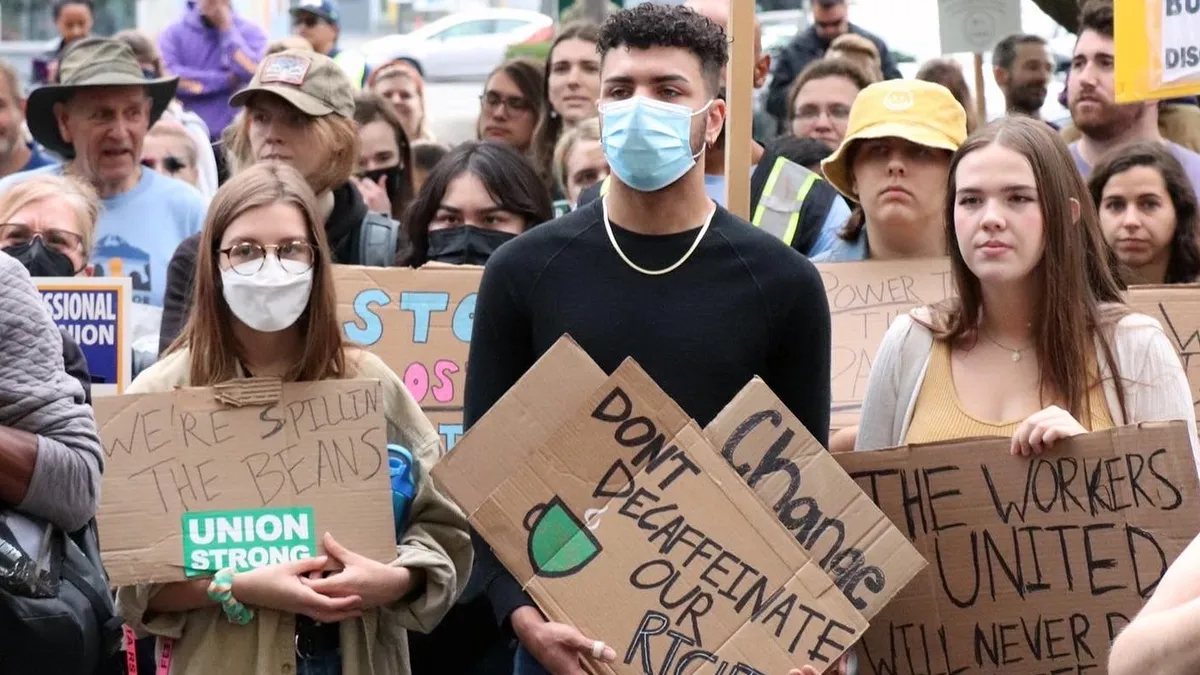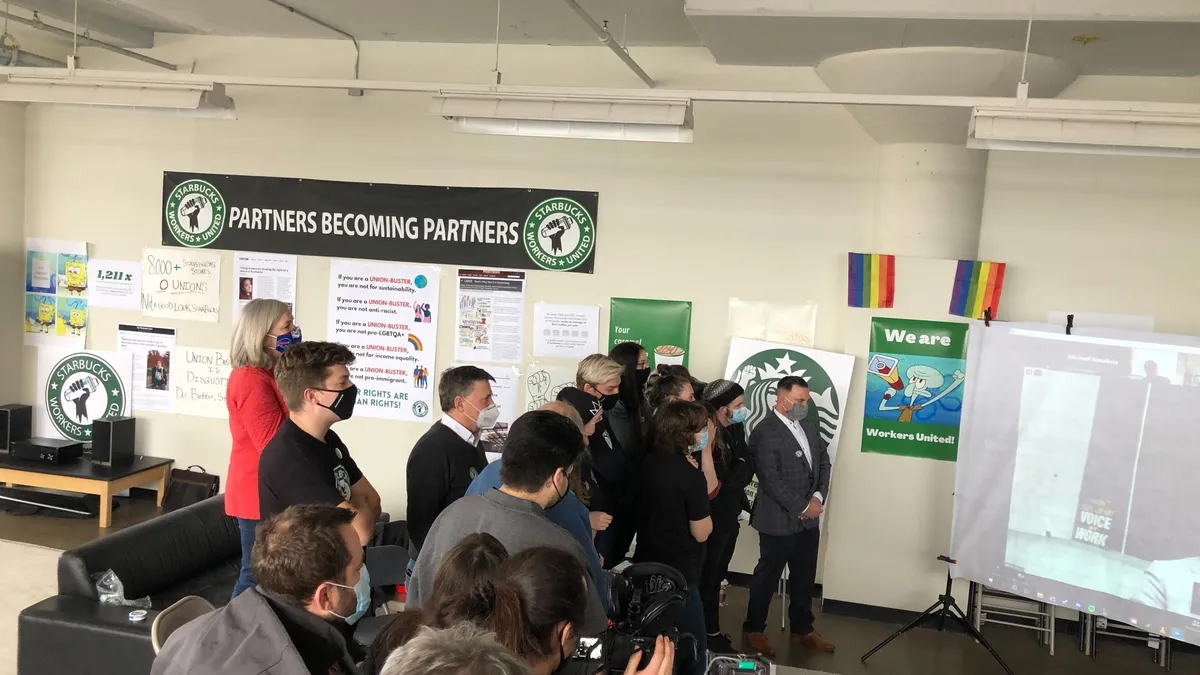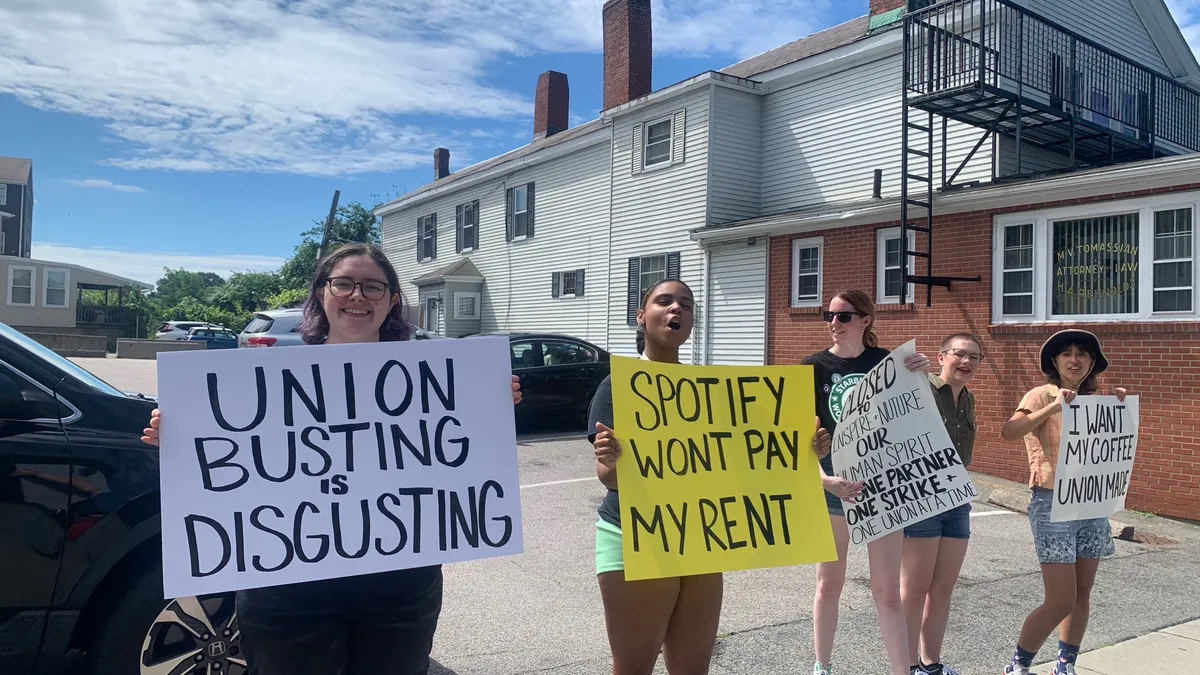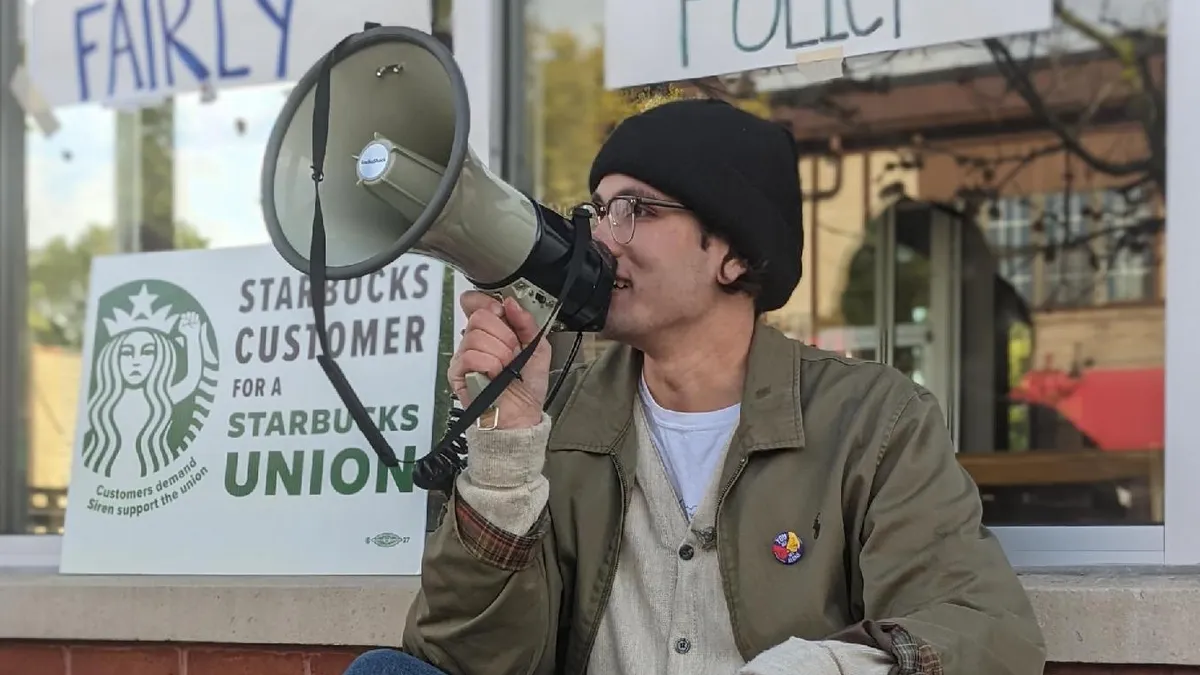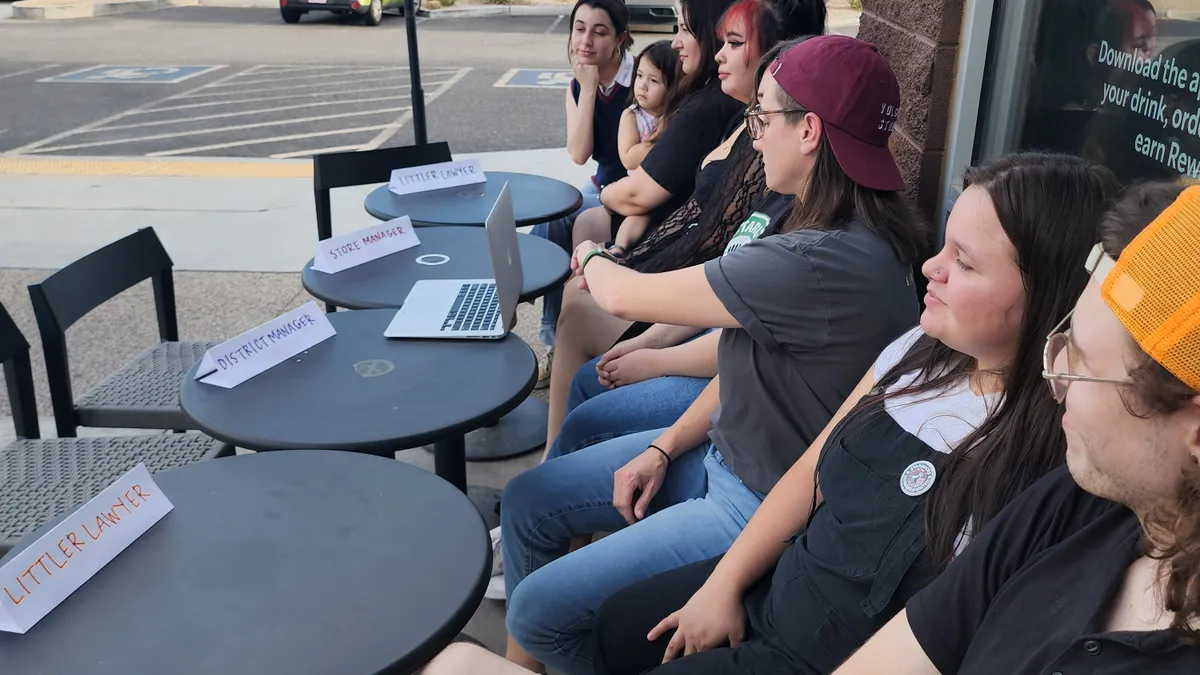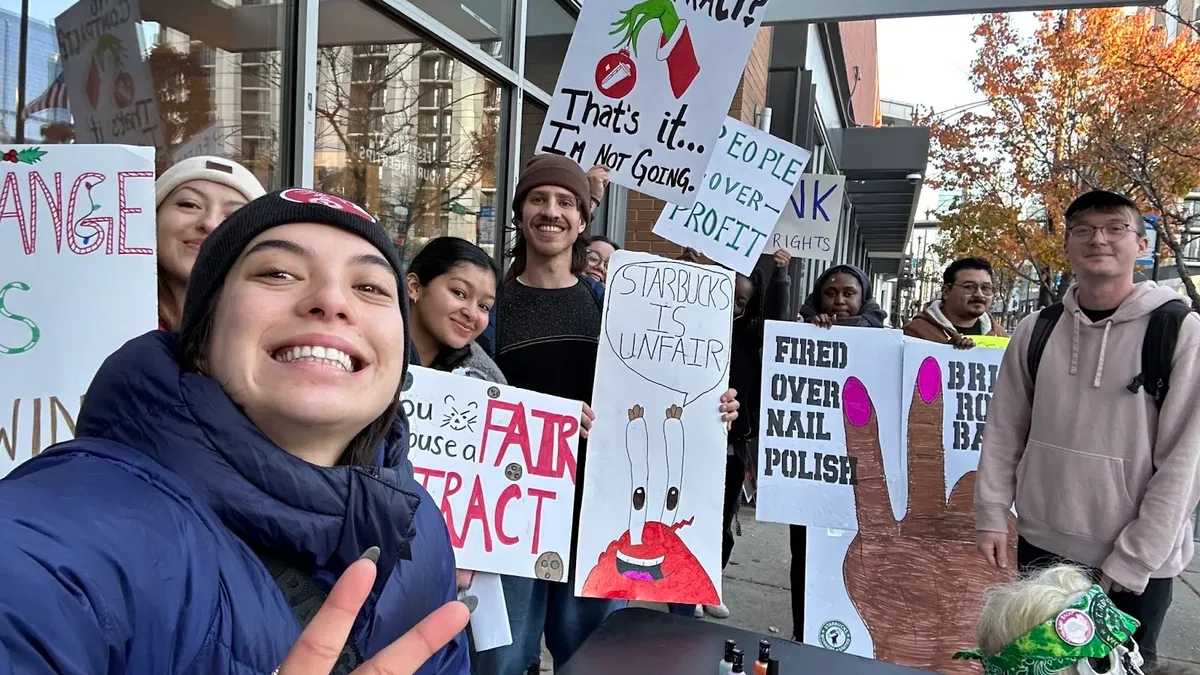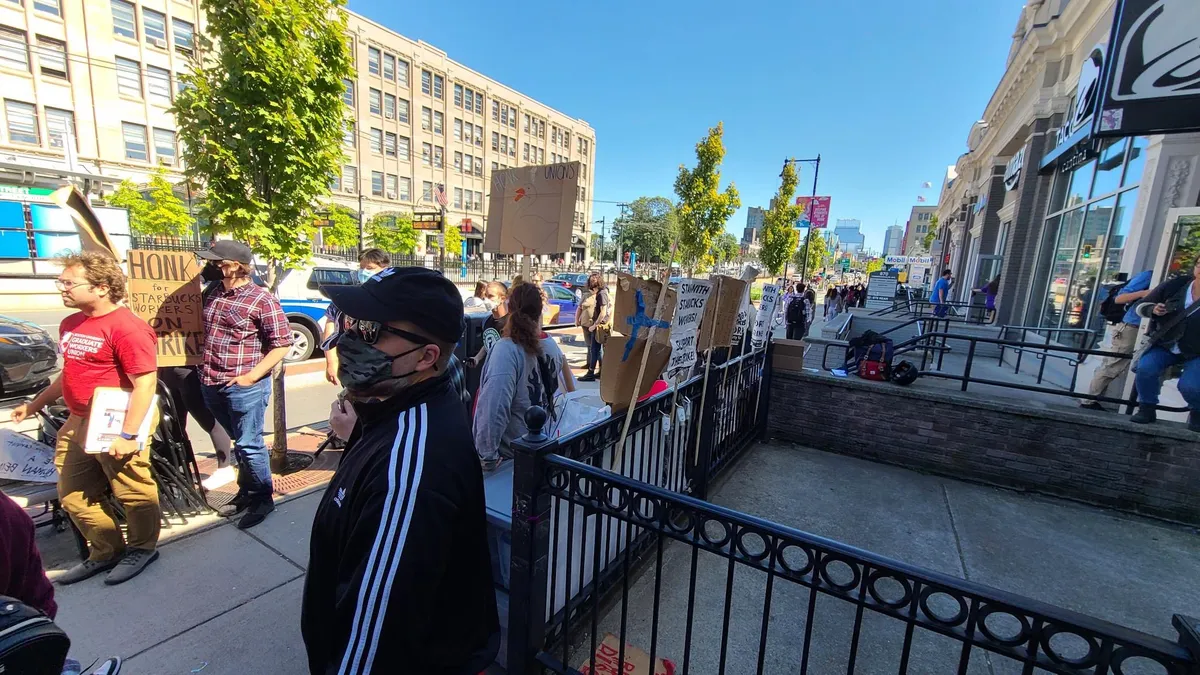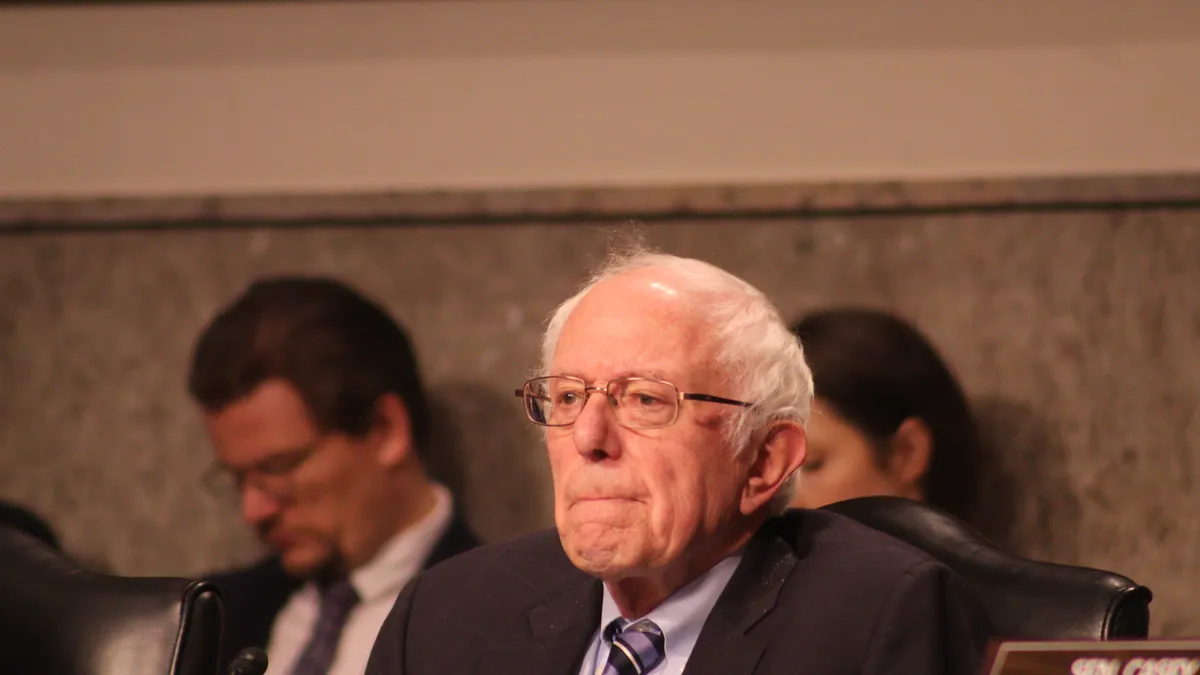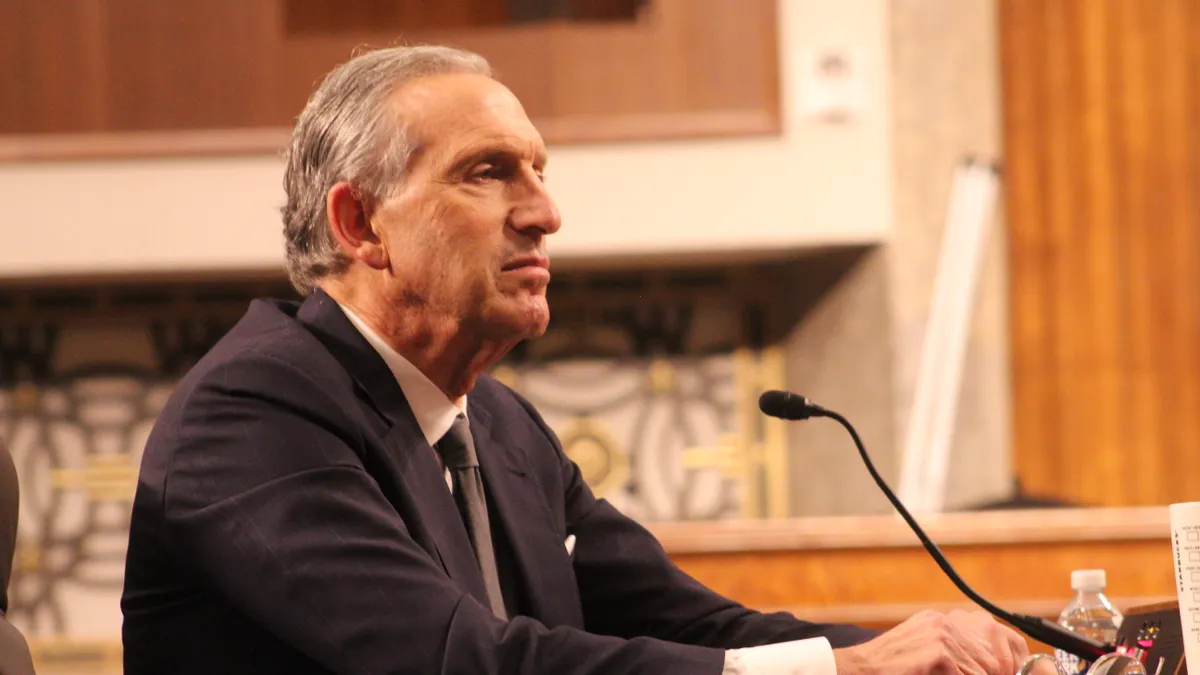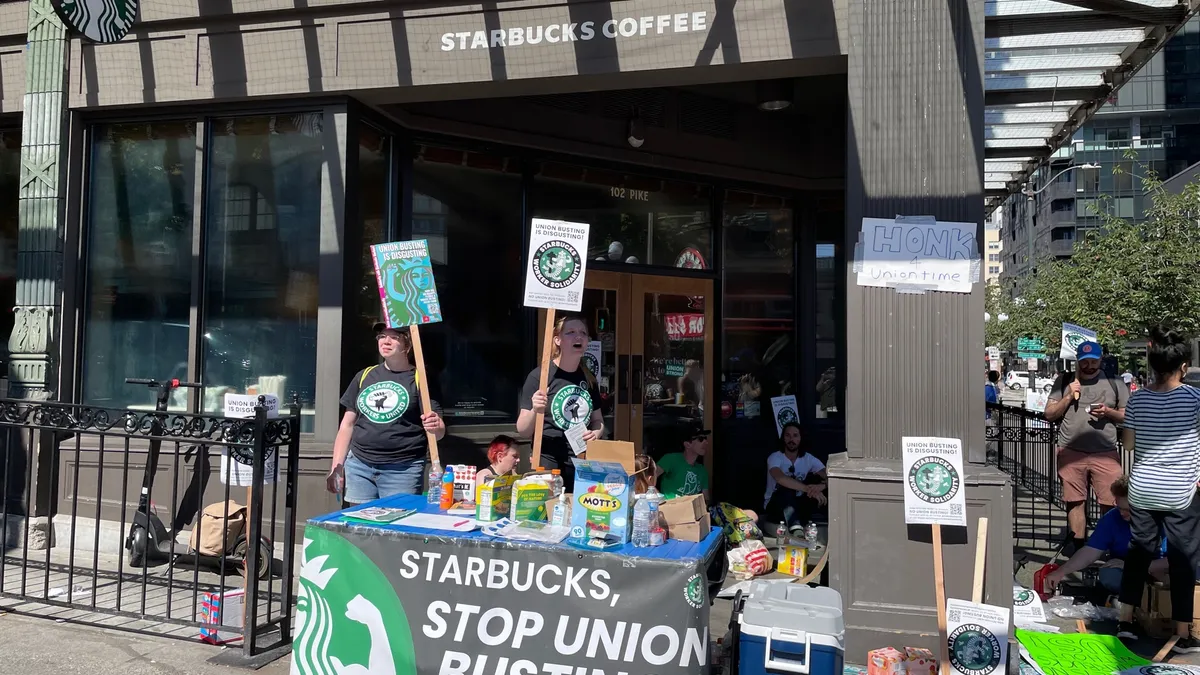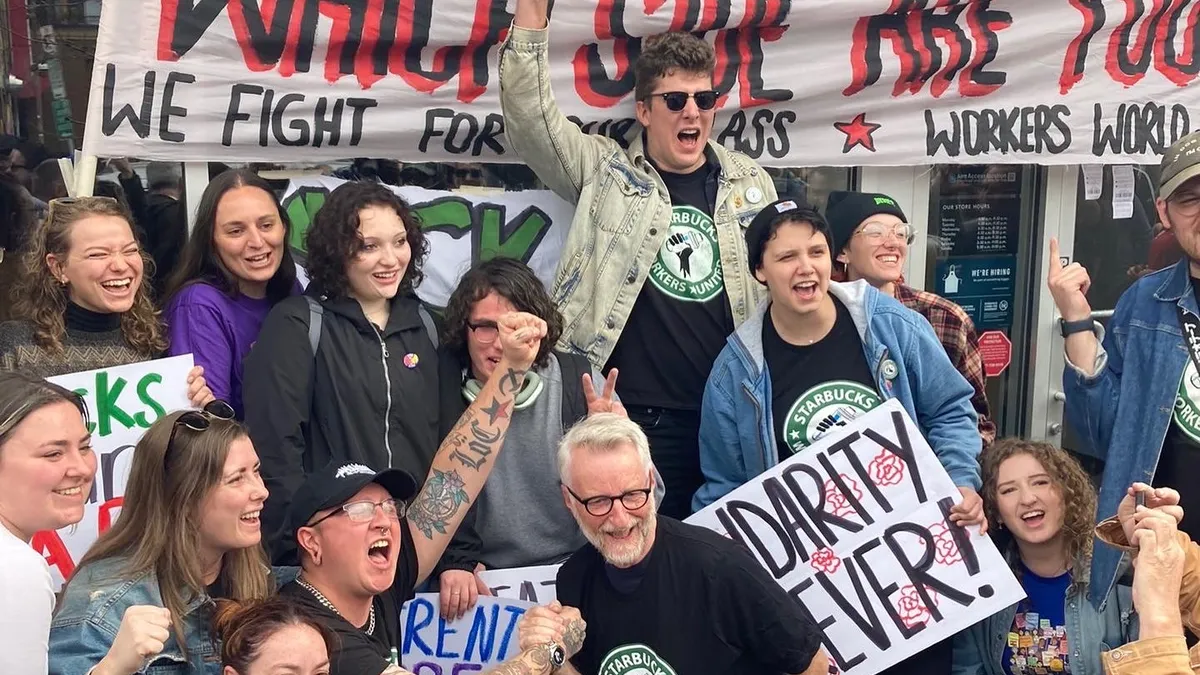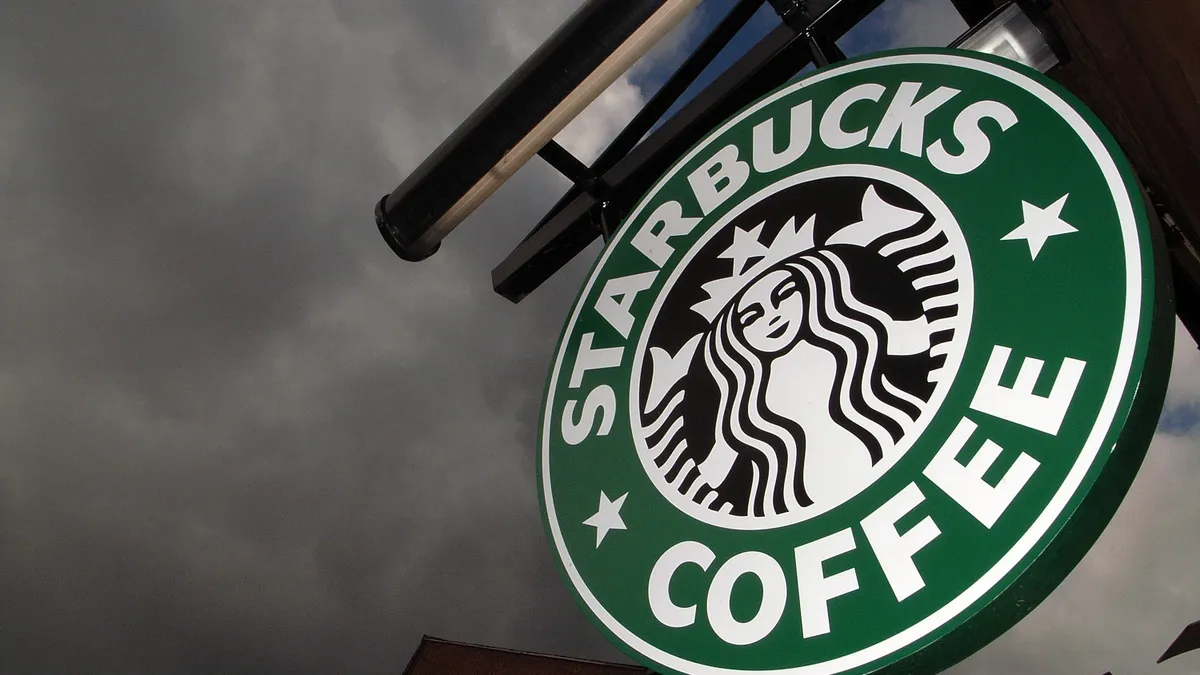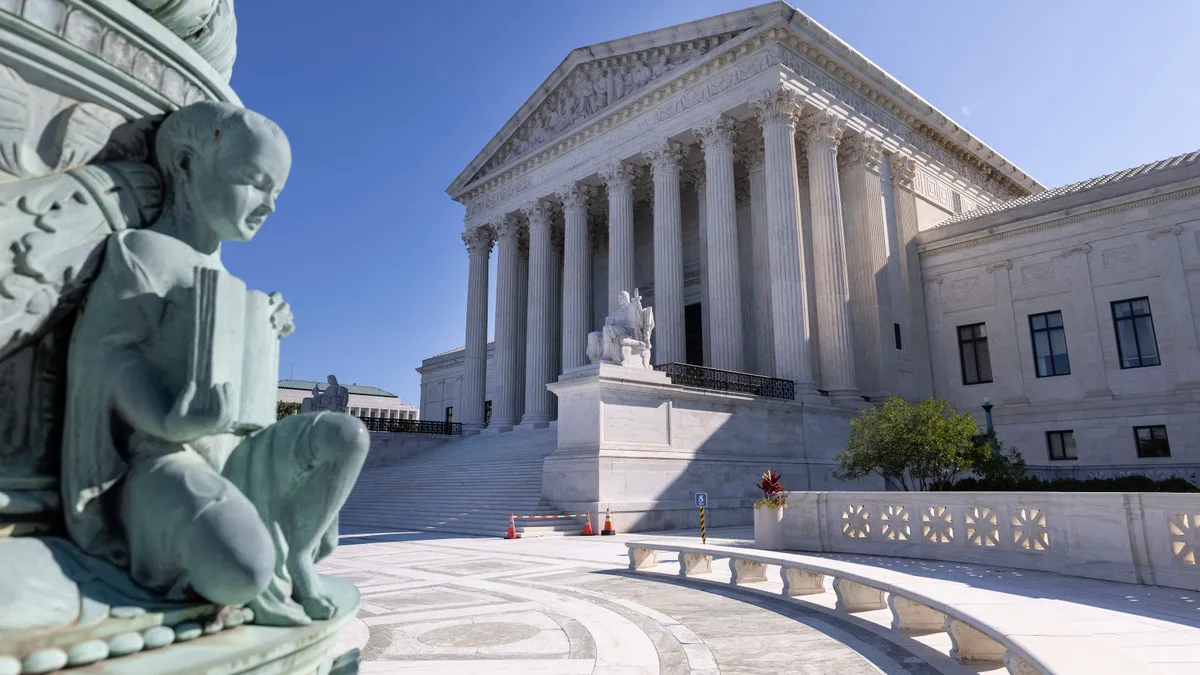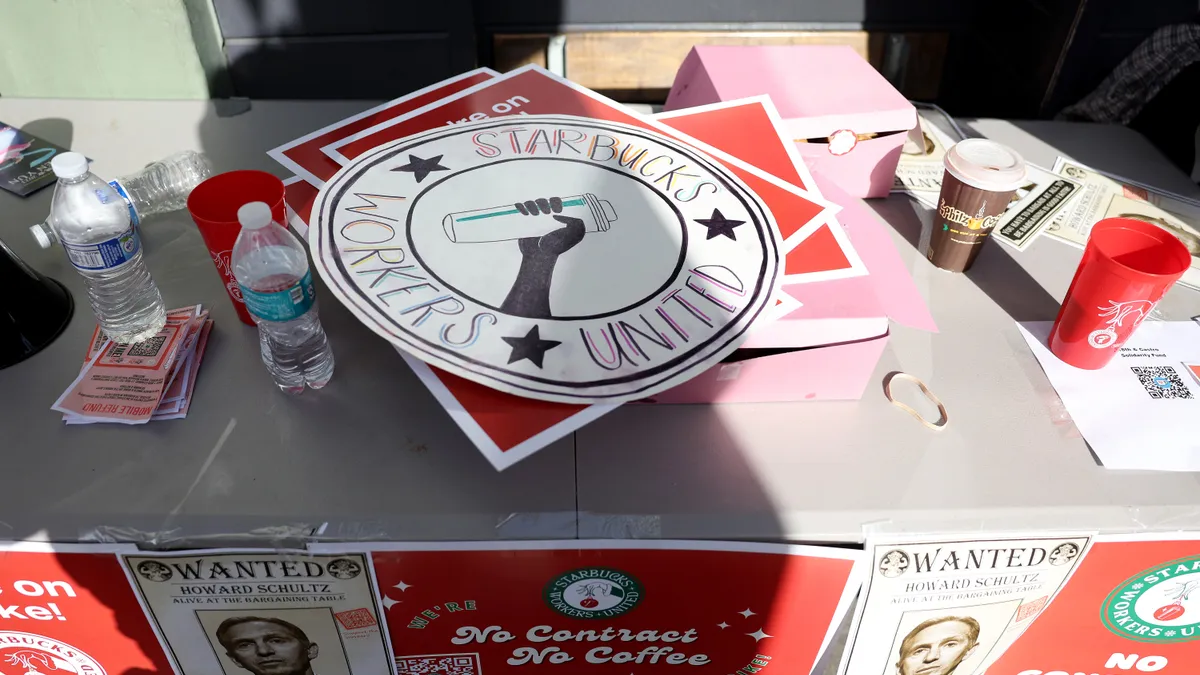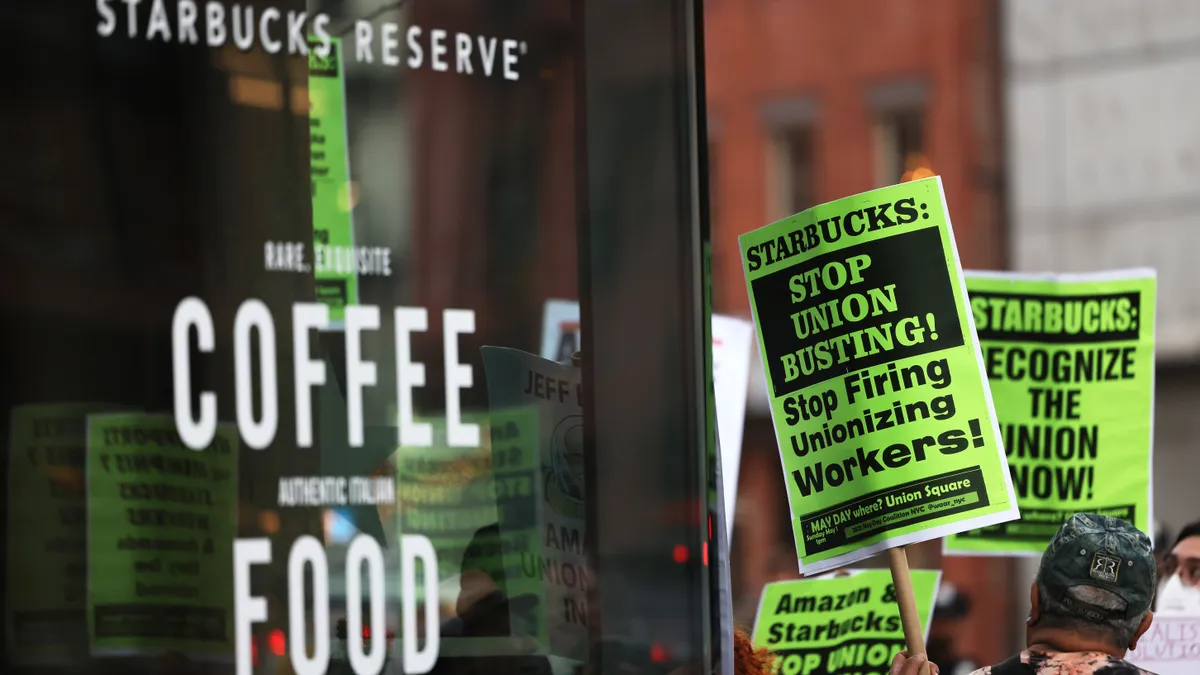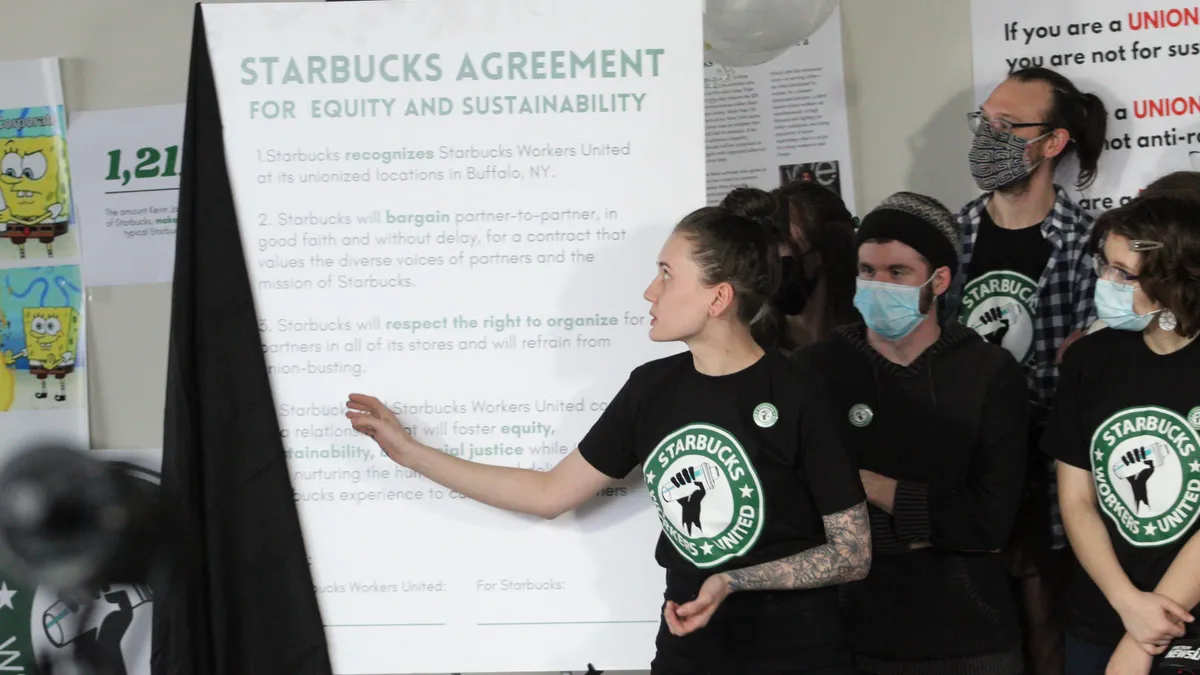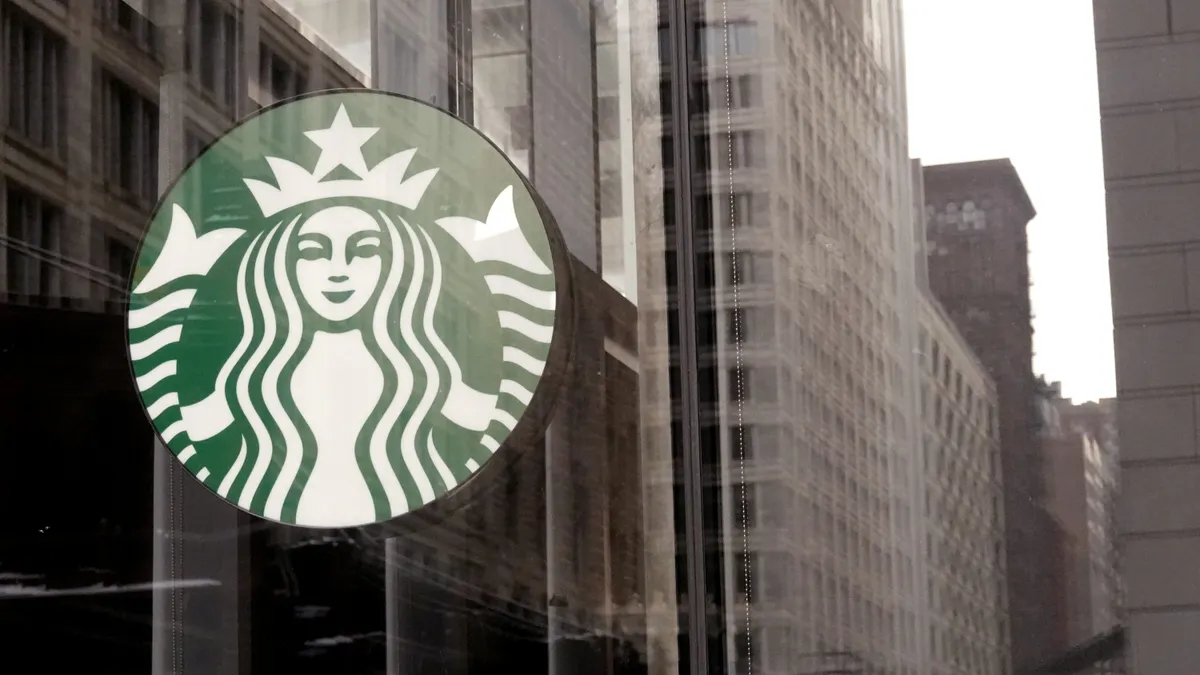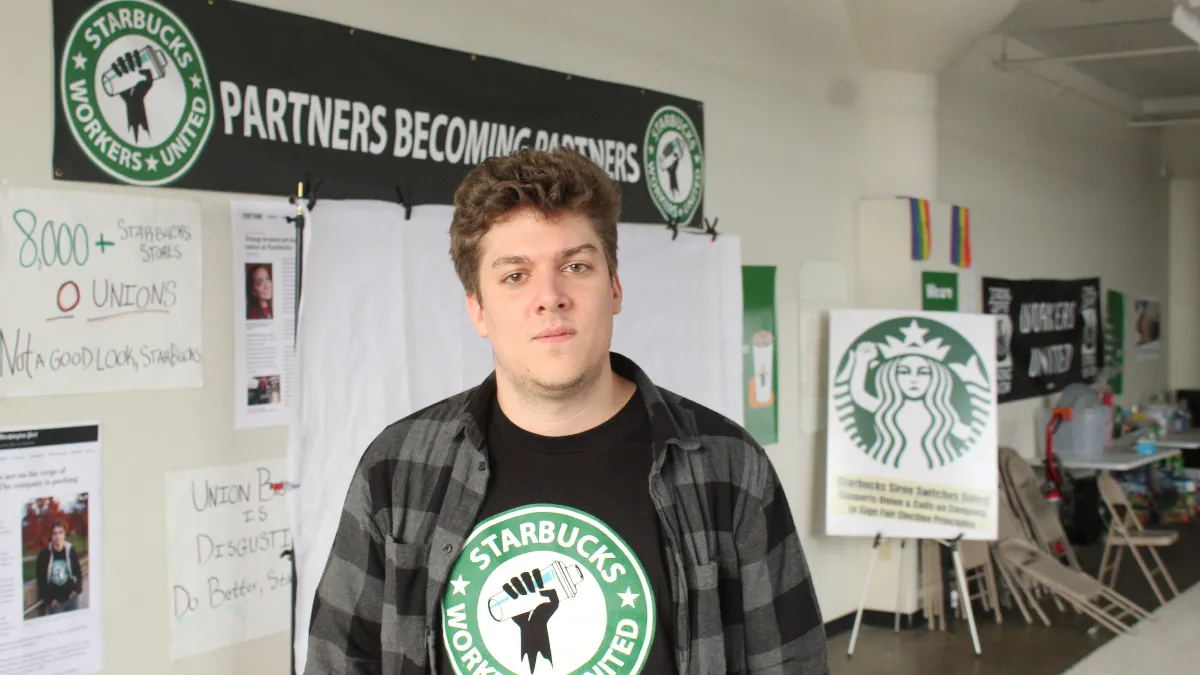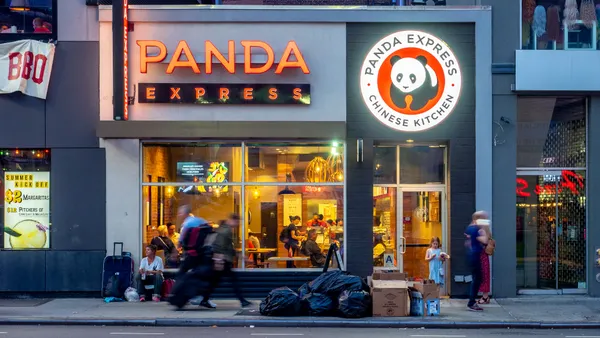Dive Brief:
- A group of Starbucks investors — including New York City Retirement Systems, a group of pension funds that managed more than $240 billion in assets in 2022, and Trillium Asset Management — are urging shareholders to vote for a proposal to set up an independent assessment of the company’s adherence to workers rights, according to a notice of exempt solicitation filed with the Securities and Exchange Commission Wednesday.
- The investor coalition says Starbucks’ actions related to the ongoing Starbucks Workers United campaign “may create reputational, legal and operational risks for the company and may impact long-term value.”
- Starbucks’ board, in a proxy statement filed with the SEC, urged shareholders to vote against the proposal at the company’s March 23 shareholders meeting.
Dive Insight:
The coffee chain’s response to unionizing — including one-on-one meetings between senior management and workers, withholding benefits from unionized stores and firings and store closures Starbucks Workers United claim are retaliatory — have hurt Starbucks’ image as a positive work environment, New York City Comptroller Brad Lander wrote in an email to Restaurant Dive.
Shareholder Proposal #8 would urge the board of directors to “commission and oversee an independent, third-party assessment of Starbucks’ adherence to its stated commitment to workers’ freedom of association and collective bargaining rights.”
The chain’s board opposes the proposal, stating that Starbucks’ adherence to labor law and states labor rights principles was sufficient. The board also accused the National Labor Relations Board, an agency designed as part of the New Deal to facilitate unionization, as “pursuing the company as though the federal agency were an agent of the union.”
Jonas Kron, Trillium’s chief advocacy officer, said the inauguration of Laxman Narasimhan as CEO in April will give the company a chance to reset its labor relations.
“Under the leadership of outgoing CEO Howard Schultz, the company has been found liable of numerous unlawful actions by the National Labor [Relations] Board (NLRB), and Starbucks has demonstrated a confrontational stance towards the NLRB and its implementation of US laws,” Kron said. “We are hopeful that Mr. Narasimhan will take a different approach.”
The investor coalition, which also includes PIRC on behalf of Merseyside Pension Fund and SHARE on behalf of the Catherine Donnelly Foundation, held about 2,227,499 Starbucks shares worth $238,854,718 on Jan. 13, 2023 according to SEC filings. The notice of exempt solicitation states the coalition believes that even if Starbucks’ actions comply with U.S. labor law, as the company has long insisted, they may still have violated the company’s Global Human Rights Statement. The company’s human rights statement pledges adherence to labor standards issued by the International Labor Organization, including a provision allowing workers to organize without any interference by employers.
Starbucks’ board, in an opposition statement, said its attempts to dissuade workers from organizing did not constitute interference with that right.
The intervention of pension funds from New York City, a union-dense Democratic stronghold, and Merseyside, a metropolitan bastion of the British Labour Party, in Starbucks’ response to Starbucks Workers United shows the campaign has impacts beyond the store level. Trillium has been urging Starbucks towards a neutrality agreement with the union since December 2021.
The push for an independent, third-party labor rights review at Starbucks mirrors similar shareholder efforts at McDonald’s and Chipotle to urge those companies to review equity and civil rights. This type of shareholder activism is not always successful. Activist investor Carl Icahn’s long-term effort to speed McDonald’s elimination of gestational crates from its pork supply chain was defeated last year, for example. But for allies of organized labor, including municipal or union pension funds, such proxy battles are a way of pressuring companies without risking union strength through strikes or boycotts.



